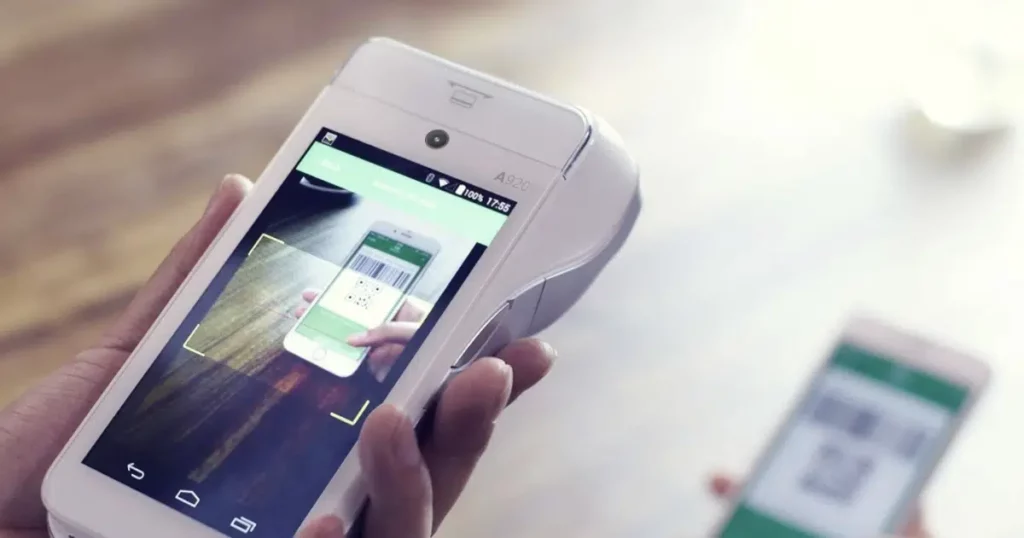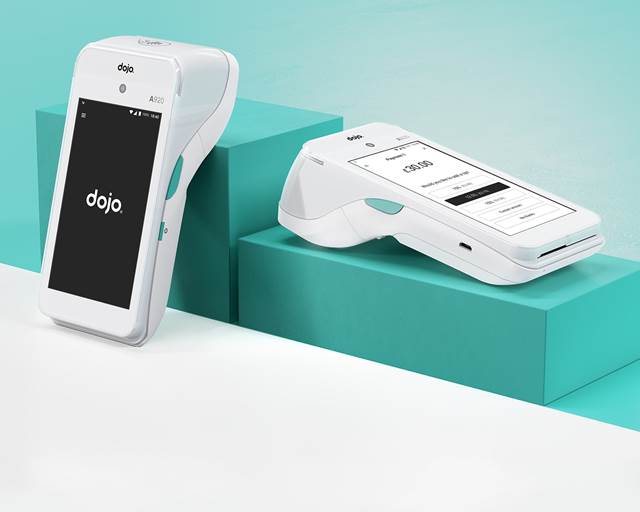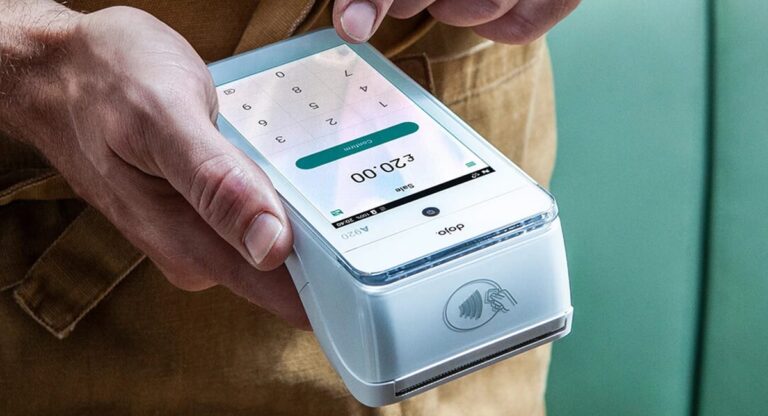Dojo card machines have cameras for security, monitoring transactions, and preventing fraudulent activities within the dojo premises.
Dojo card machines are widely used in businesses and establishments for accepting payments. One exciting feature that sets them apart from traditional card machines is the inclusion of cameras.
These cameras serve a specific purpose, not just for surveillance or security reasons. So, why do Dojo Card Machines have cameras?
From enhancing customer experience to providing additional layers of fraud prevention, the cameras in Dojo card machines play a crucial role in smooth and secure payment transactions.
In this article, we will tell you why Dojo card machines have cameras and how they contribute to the overall functionality and security of the payment process.
Why Do Dojo Card Machines Have Cameras?

Incorporating cameras into dojo card machines enhances safety, trust, and efficiency within the dojo community.
Dojo card machines have cameras for several reasons. Why do Dojo Car machines have cameras? If you can’t figure it out, let us describe the facts for you.
Security: Cameras enhance dojo security by monitoring transactions, deterring theft, and preventing unauthorized access.
Transaction Verification: Cameras provide visual proof of payment, reducing disputes and ensuring accurate transaction records.
Accountability: The presence of cameras promotes transparency and accountability among students, instructors, and staff.
Fraud Prevention: Cameras discourage fraudulent activities such as unauthorized card usage or manipulation of transactions.
Dispute Resolution: Recorded footage can be used to resolve payment disputes and provide evidence if discrepancies arise.
Customer Confidence: Cameras contribute to a professional and trustworthy image, instilling confidence in students and parents.
Regulatory Compliance: Some regions have legal requirements for video surveillance in commercial spaces, ensuring compliance.
Quality Control: Cameras help monitor the overall dojo environment, ensuring standards adherence and a safe atmosphere.
Operational Insights: Footage can offer insights into peak transaction times, customer flow, and dojo activity for better operational management.
Modernization: Integrating cameras align dojos with modern payment practices and technological advancements.
How Are the Cameras Used for Security In A Dojo Setting?
Cameras contribute to a secure and well-managed dojo environment by deterring potential threats, maintaining order, and providing a means to respond effectively to various situations.
Also, it helps record transactions, track payment processes, and discourage unauthorized access or misuse of card machines.
Cameras in a dojo setting are used for security in the following ways:
Surveillance:
Cameras monitor the dojo premises, recording activities and ensuring a watchful eye on entrances, training areas, and common spaces.
Crime prevention:
Visible cameras discourage theft, vandalism, and unauthorized access, creating a deterrent for potential wrongdoers.
Access Control:
Cameras may be positioned at entrances, tracking who enters and exits the Dojo and enhancing control over access points.
Incident Documentation:
Cameras capture footage of any incidents or disturbances, providing valuable evidence for investigations or legal purposes.
Emergency Response:
In case of emergencies or safety concerns, cameras provide real-time visual information to guide responses and actions.
Student Safety:
Cameras enhance student safety by monitoring training sessions, ensuring proper supervision, and preventing accidents.
Asset Protection:
Valuable equipment or martial arts instruments can be monitored using the dojo card machine’s camera. Uses of the camera reduce the risk of theft or damage.
Visitor Tracking:
Cameras help monitor visitors, ensuring only authorized individuals enter the dojo premises.
Remote Monitoring:
Some systems allow remote access to camera feeds, enabling instructors or management to monitor the Dojo even off-site.
Incident Resolution:
In the event of altercations or disputes, camera footage can clarify situations and facilitate fair resolution.
What types of cards do Dojo card machines accept?

Dojo card machines typically accept various types of payment cards, including:
Credit Cards:
You can use Major credit cards like Visa, MasterCard, American Express, and Discover to the dojo card machines.
Debit Cards:
Debit cards linked to bank accounts, often with Visa or MasterCard logos, enable both PIN and signature transactions.
Contactless Payment:
Cards with contactless technology (NFC) that allow quick tap-and-go transactions.
Mobile Wallets:
Payment apps like Apple Pay, Google Pay, Samsung Pay, and other compatible mobile wallet options.
Prepaid Cards:
Preloaded cards issued by banks or payment processors are often used for specific purposes or limited budgets.
Gift Cards:
Specialized cards with prepaid funds, commonly used for gifting or promotional purposes.
Rewards Cards:
Cards linked to loyalty programs or rewards systems offer benefits or transaction points.
EMV Chip Cards:
Cards with embedded EMV chips for added security in payment processing.
International Cards:
Cards issued by international banks allow payments from visitors or individuals with foreign accounts.
FAQs
Do these cameras record only payment transactions?
While primarily focused on payment transactions, some cameras might also monitor overall dojo activity for safety and security reasons.
Are these cameras continuously recording or only during transactions?
Camera recording settings can vary. Some may record continuously for comprehensive security, while others might activate during transactions.
Do the cameras store footage for a specific duration?
Yes, cameras often store footage for a defined period, which can be useful for reviewing transactions, addressing disputes, or investigating incidents.
Can these cameras compromise students’ privacy?
Most dojo card machine cameras are positioned to capture transactions, minimizing intrusion into private areas. Privacy concerns are generally addressed.
Are these cameras used to prevent fraud by students or instructors?
Yes, cameras help discourage fraudulent activities involving payments and enhance accountability among students and instructors.
How do the cameras contribute to the overall safety of the dojo environment?
By deterring unauthorized access, monitoring the premises, and promoting transparent financial practices, cameras contribute to a safer dojo environment.
Are there legal considerations regarding camera use in dojos?
Yes, the use of cameras may be subject to local privacy laws. Dojos typically ensure compliance with legal requirements when implementing camera systems.
Can students or visitors request access to camera footage?
Access to camera footage may be restricted and subject to specific policies. Inquiries about footage should be directed to the dojo management.
Do these cameras help prevent disputes over payments or transactions?
Yes, recorded footage can serve as evidence in case of payment disputes or discrepancies, ensuring transparent and accurate resolution.
How does the camera align with the traditional principles of martial arts?
While modern technology like cameras may seem at odds with tradition, their purpose is to enhance security, transparency, and professionalism within the dojo community.
Conclusion
Incorporating cameras into dojo card machines is a multifaceted approach that enhances security, fosters transparency, and promotes a professional atmosphere.
So, why do dojo card machines have cameras? We no longer have to tell you that, right? The Dojo car machine plays a significant role in ensuring a safe and efficient dojo environment, instilling confidence among students, instructors, and stakeholders.

